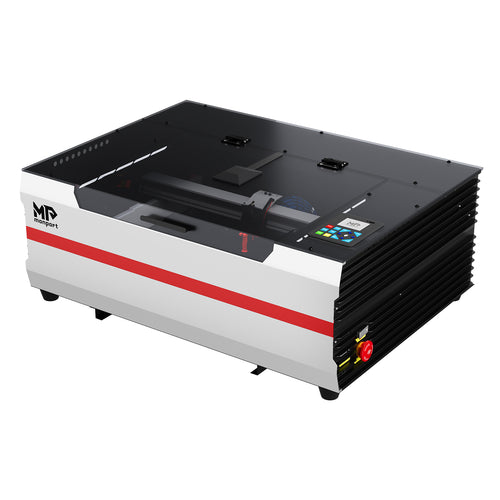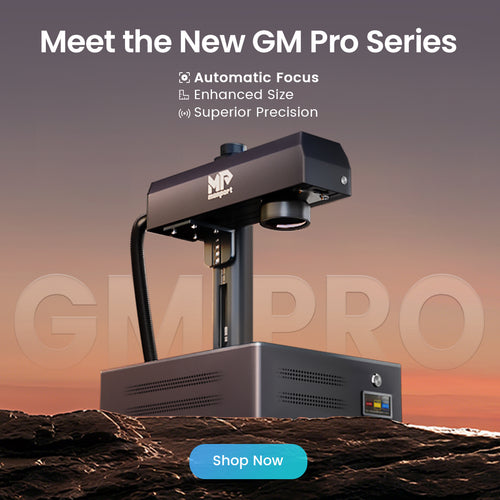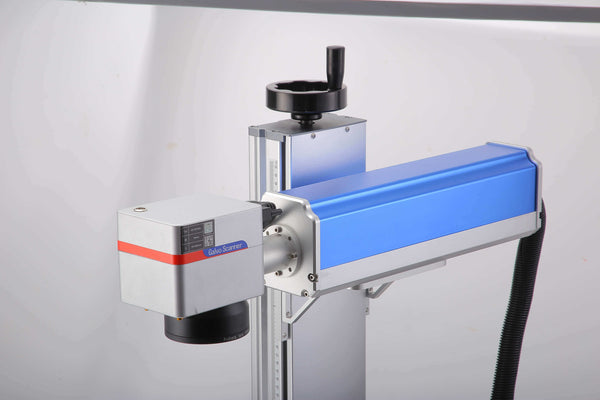
What is fiber laser engraving? Well, if you have ever used a lens to make a fire, then you probably know that the lens focuses light from the sun and converts it into heat that can cause burning. Similarly, these laser engravers generate strong light at the end of the fiber optic cable, and then generates a powerful laser beam. Then use this beam to engrave (or even cut) patterns on different materials. Many users prefer the monport 20w fiber laser for its reliable performance in these tasks.
The basic principle of laser engravers and laser marking is that a high-energy continuous laser beam is generated by a laser generator, and the focused laser acts on the printing material to instantly melt or even vaporize the surface material. By controlling the path of the laser on the surface of the material, it forms the required graphic mark. What is a fiber laser? It is a type of laser that uses fiber optic cables to generate and amplify the laser beam, providing precision and efficiency in engraving.
Monport's fiber laser engravers series are solutions for engraving and marking all types of bare metals and plastics. Whether you want to mark metal with barcodes, logos, and serial numbers, or personalize metal items such as watches, jewelry, and medals, The Monport fiber laser system has functions to help you achieve your goals.
Ⅰ. How to use a fiber laser engraver?
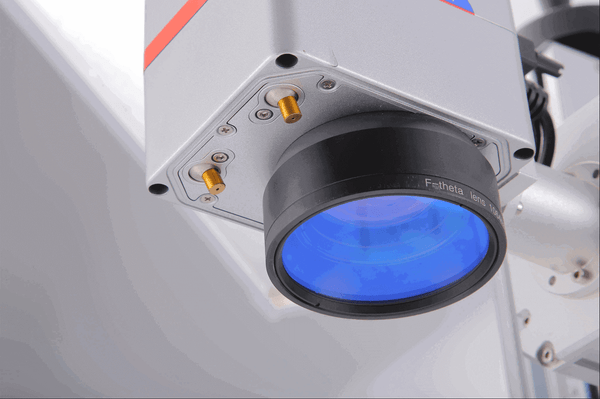
For almost all metals, fiber laser engravers can provide readable marks quickly and efficiently. They are very suitable for engraving all types of metal surfaces. Examples include aluminum, anodized aluminum, steel, stainless steel, magnesium, lead, and zinc. What is a fiber laser? It is a technology that allows for deep and precise engraving on these metals. The monport 20w fiber laser is often recommended for such tasks.
The fiber laser machine has low maintenance costs, does not use consumables, and can create high-contrast marks. You can use them to permanently mark data matrix codes, QR codes, serial numbers, bar codes, logos, etc. What is a fiber laser? It is a powerful tool that offers cost-effective and durable engraving solutions.
How to use fiber laser engravers? Below you can learn from our Monport laser to get the operation procedure and the ways and some usage suggestions.
Step 1: Prepare your design
The first thing to do is to create the image to be engraved on the metal. Whether this is a photo or a vector image, it should be black and white or grayscale (if your laser supports it). This will give you insight into the appearance after engraving. What is a fiber laser? It is a laser system capable of accurately etching detailed images onto metal surfaces. The monport 20w fiber laser delivers exceptional results in detailed design engraving.
Step 2: Clean the fiber machine
Use rubbing alcohol and a soft cloth to clean metal parts thoroughly. Remove all dust and grease from the surface. What is a fiber laser? It is a device that requires a clean surface to ensure precise and high-quality engraving results. A clean setup ensures your monport 20w fiber laser performs at its best.
Step 3: Apply spray
Let your metal sheets dry for a few minutes before spraying. Before application, again make sure that the surface is completely clean. What is a fiber laser? It is an engraving system that interacts with the material surface to create permanent marks. The monport 20w fiber laser is designed to handle these processes smoothly.
Step 4: Adjust focus
Turn on the machine and prepare for engraving. Make sure you wear suitable safety glasses! What is a fiber laser? It is a machine that operates with high energy levels, requiring safety precautions during use. The monport 20w fiber laser offers easy focus adjustment for accurate results.
Step 5: Engraving
Load the file in step 1 into the laser control software. As a starting point, you should set maximum power and low speed for best results. What is a fiber laser? It is a tool that provides flexibility in adjusting engraving speed and power for different materials. The monport 20w fiber laser allows fine-tuning for superior output.
Step 6: Finish,Enjoy your art work!
After the laser is completed, remove the metal sheet from the machine and clean it. What is a fiber laser? It is a tool that enables detailed and professional-looking engraving results.
Ⅱ. Your first try on fiber laser engraver
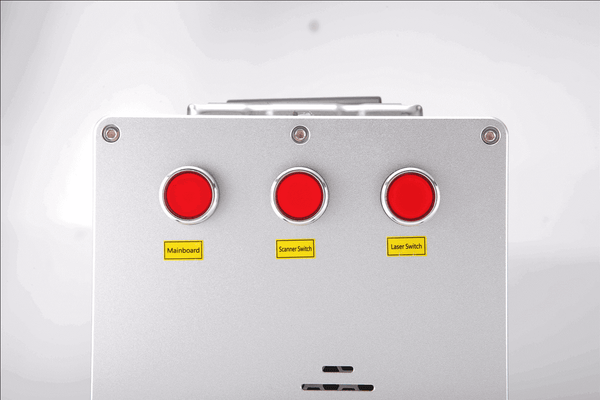
For the person who are new to this machine, they will think highly of the machine and also be afraid that he will damage it. So before we start, let’s say a few words of wisdom and some safety suggestion:
- The operating personnel must be trained to master the basic performance of the equipment proficiently.
- It is necessary to strictly follow the start-up procedure of the laser equipment to carry out safe operation. When performing laser work, wear anti-radiation glasses.
- When the laser marking machine is working, the operator cannot leave the post. If necessary, the power supply should be cut off in time to cut off all potential dangers.
- If an abnormal situation is found during processing, it should be reported in time and the laser equipment should be kept clean and tidy.
- We need to perform regular maintenance on the laser equipment. Generally, we will check and maintain it once a week, and carry out a major maintenance every six months, and we must always abide by the safety rules.
- Check whether there are any abnormalities after starting the machine, which should be checked carefully.
- When the laser equipment is working, we must pay attention to the operation of the machine to prevent the machine from going out of an effective stroke.
Ⅲ. What can we create with a fiber laser engraver?
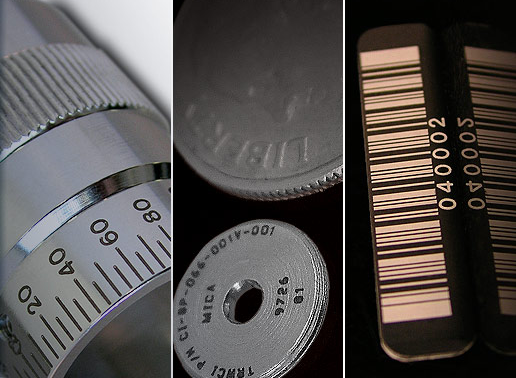
(1) The rapid development of plaques, signs, and signs of urban public facilities, street renovations, modern residential quarters, hotels, and office buildings have generated a lot of demand for signs and guidance systems that meet international standards. Among them, carved plaques Signs, signs and signs occupy a considerable part. In order to establish a good corporate image and improve internal management, powerful companies have also replaced company plaques with engraved ones, and made breast badges and department badges in the form of engraving. Has long become a fashion trend.
(2) Architectural models, mechanical models, vehicle models, and ship model models are the oldest design tools. Modern society has given newer meanings and wider uses to models. It is no exaggeration to say that models are industrial Model. The performance and display of machinery, vehicles, ships, architectural design schemes, and the sale of commercial houses are all inseparable from models. The models themselves also have independent competitions, commemorations and collections and other activities and meanings. At present, the engraving machine that makes models more exquisite and faster has become the best helper for making models in all walks of life.
(3) Crafts, gifts, souvenirs, medals, certificates, souvenirs and advertising materials in more and more conferences and tourism activities are popularly produced by carving. Engraving on pens, leather goods, tableware, lighters, watches, bottle openers, key chains, trophies, award plates, imitation crystal ornaments, golf clubs, shotguns, rings and other items can reflect taste and personality. Boxes, pendants, mirror frames, silverware and other items are engraved with interesting carvings to cater to people's needs for emotional communication.
(4) Industrial processing China's output of building materials has ranked first in the world, and it is currently developing rapidly in the direction of improving quality and perfecting patterns and varieties. The engraving machine can easily and quickly produce a large number of exquisite molds for building decoration materials such as gypsum ceilings, ceramic tiles, floor tiles, and so on, so that the value of decorative materials processed by this mold is doubled. In countries with developed manufacturing industries, most of the surface marking of parts, the production of instrument panels, and the production of various signs, identification plates, work number plates, and production flow charts necessary for standardized management of enterprises, are mostly completed by engraving machines. According to foreign survey statistics, in developed industrial countries in Western Europe such as Germany and Switzerland, 2/3 of the engraving machines are used as machine tools in factories. China is becoming the "factory of the world", and it is believed that engraving machines will flourish and enter workshop after workshop in the land of China.
(5) Plexiglass is one of the most ideal engraving materials, Plexiglas has excellent processability, and Plexiglas has always been an ideal material for testing equipment, models, POP advertising decorations, small decorations, artistic lamps, craft gifts, souvenirs, etc., engraving machines and plexiglass This intimate combination of good tools and good materials will inevitably produce a variety of excellent products. The monport 20w fiber laser is a great match for plexiglass projects.
Read More: Best Fiber Laser Engravers & Cutters in 2023
Ready to Save? Enter BESTMP10 at checkout – click here to shop!




